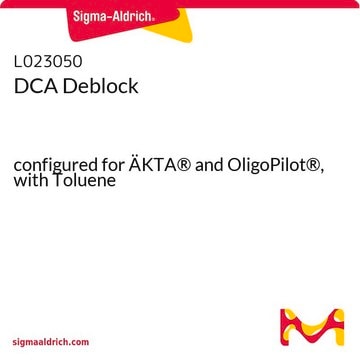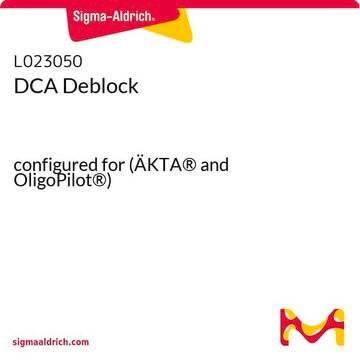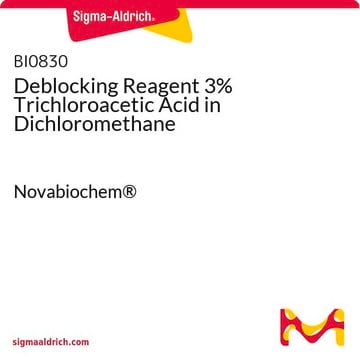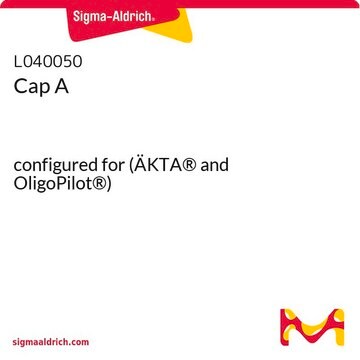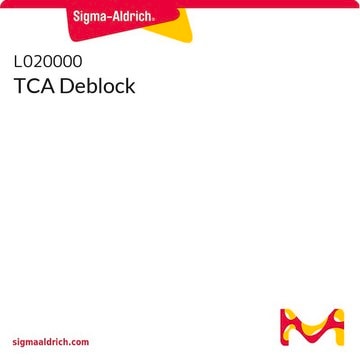707066
DCA Deblock (0.36M dichloroacetic acid in toluene)
Synonym(s):
DCA Deblock, DEBLOCK (0.36M dichloroacetic acid in toluene)
About This Item
Recommended Products
form
liquid
Quality Level
concentration
≤100 ppm in H2O
bp
110-111 °C
density
0.884 g/mL at 25 °C
SMILES string
OC(=O)C(Cl)Cl
InChI
1S/C2H2Cl2O2/c3-1(4)2(5)6/h1H,(H,5,6)
InChI key
JXTHNDFMNIQAHM-UHFFFAOYSA-N
Looking for similar products? Visit Product Comparison Guide
Related Categories
General description
Application
Signal Word
Danger
Hazard Statements
Precautionary Statements
Hazard Classifications
Aquatic Chronic 3 - Asp. Tox. 1 - Carc. 2 - Eye Dam. 1 - Flam. Liq. 2 - Lact. - Repr. 1B - Skin Irrit. 2 - STOT RE 2 Inhalation - STOT SE 3
Target Organs
Central nervous system
Storage Class Code
3 - Flammable liquids
WGK
WGK 3
Flash Point(F)
41.0 °F
Flash Point(C)
5 °C
Personal Protective Equipment
Certificates of Analysis (COA)
Search for Certificates of Analysis (COA) by entering the products Lot/Batch Number. Lot and Batch Numbers can be found on a product’s label following the words ‘Lot’ or ‘Batch’.
Already Own This Product?
Find documentation for the products that you have recently purchased in the Document Library.
Articles
Fluorescence lifetime measurement is advantageous over intensity-based measurements. Applications include fluorescence lifetime assays, sensing and FLI.
Fluorescence lifetime measurement is advantageous over intensity-based measurements. Applications include fluorescence lifetime assays, sensing and FLI.
Fluorescence lifetime measurement is advantageous over intensity-based measurements. Applications include fluorescence lifetime assays, sensing and FLI.
Fluorescence lifetime measurement is advantageous over intensity-based measurements. Applications include fluorescence lifetime assays, sensing and FLI.
Our team of scientists has experience in all areas of research including Life Science, Material Science, Chemical Synthesis, Chromatography, Analytical and many others.
Contact Technical Service